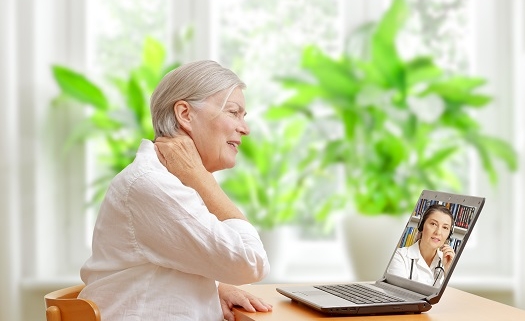Telehealth has become more prominent since the changes that 2020 brought. With in-person care becoming a risk at the height of the COVID-19 pandemic, more people needed healthcare access in a different way, including for mental health services. According to the World Health Organization (WHO), around 14% of people ages 60 and up have been diagnosed with a mental illness. To answer this call, telehealth care came to the forefront, and it offered some surprising advantages.
1. Ease of Access
A major benefit that telehealthcare has provided since further implementation is allowing people access to services they may not have been able to get in-person. Whether part of an underserved group or area, or experiencing mobility challenges that make getting to appointments difficult, people who need accessible care options can find them through telehealth services. Many barriers to care are removed when you can see a treatment provider right in the comfort of your own home.
Furthermore, telehealth access is associated with fewer cancellations and delays, allowing you to save time and see your therapist without worrying about transportation, weather, or other challenges that may impact your care.
2. Cost-Effective
Time is money as they say, and time is priceless. With teletherapy as an option, you save both money and time. Hiring drivers, taking public transportation, or driving your own car can come at a cost. Extra help may also come at a cost that you can save by opting for virtual care.
Less transport time equals more opportunity to do what you love, whether spending time with loved ones, watching your favorite show, or engaging in a new hobby.
3. Care Monitoring
Focusing on our mental health is important, but some days we can relapse or struggle more than normal. Addiction among the elderly rose during the pandemic, and it can be beneficial to have a therapist who is able to monitor your progress during times that may be especially trying.
Aftercare improves recovery success, and connection to a therapist also helps provide support and information when needed.
4. Comfort and Health
Being human means living with some risk of contagious illness. As a collective, we became acutely aware of this during the height of the pandemic. Being able to enjoy therapy from home means that you can avoid such risks to your health, and depending upon how you feel, you can still join therapy even if you are feeling a little under the weather, without passing on an illness to anyone else.
It can be difficult for some to share intimate details of their lives with a therapist. If there is a feeling of a lack of privacy, people may withhold information that could affect their healing journey. Depending on your living situation, therapy from home may provide a more private counseling experience.
The familiarity of home can also provide physical comfort. You can even bring your furry friend along for therapy sessions!
5. Connection
Though friendships and connections can be made at any age, the older we get, the more goodbyes we may say. A recent Pew Research study found that adults in the U.S. are more likely to live alone than adults anywhere else in the world, with about 27% of Americans age 60 or over living alone. This can lead to feelings of loneliness and isolation. These feelings can be painful and, at their most intense, can distract us from being present in our lives.
Telehealth groups can connect us with others on a virtual scale. For people who may find difficulty when going out or be unable to do so, it offers companionship and connection. There are support groups where people may share common interests and goals while working on recovery and healing. Your therapist is also a connection that can help lend an ear during difficult times. Remote contact can be quicker and easier, where at times you can text or call a therapist as well as do video chats. Telehealth therapy and groups can help bridge gaps that were previously inaccessible in healthcare.
Conclusion
More and more seniors are turning to online therapy due to its extensive benefits and ease of access. It’s now simpler than ever before to find a therapist who can meet all of your therapy needs. There are a number of online therapy options that are available, and many therapists now offer telehealth options if you go through insurance.
You do not have to struggle alone. Effective therapy tools are at your fingertips. For further information and resources, see the Senior Coalition blog today!





